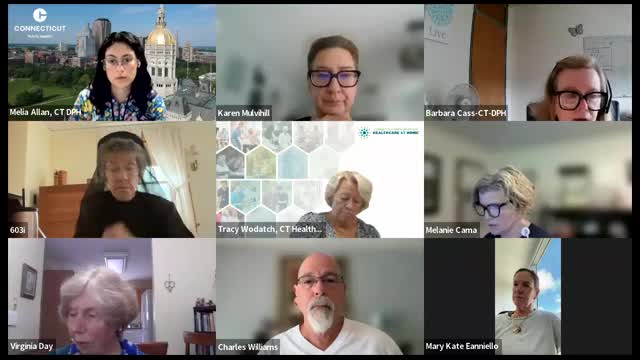Connecticut MOLST Program Updates Training and Form Requirements for Providers
August 06, 2025 | Department of Public Health, Departments and Agencies, Organizations, Executive, Connecticut
Thanks to Scribe from Workplace AI , all articles about Connecticut are free for you to enjoy throughout 2025!

This article was created by AI using a video recording of the meeting. It summarizes the key points discussed, but for full details and context, please refer to the video of the full meeting. Link to Full Meeting
The training program has been divided into three sections: an accessible overview for consumers, mandatory training for eligible providers who write MOLST orders, and specialized training for emergency medical services (EMS). This structured approach is intended to ensure that all stakeholders are well-informed about the changes, particularly the transition from the traditional lime green form to a more streamlined digital process. The new MOLST form will no longer require a witness signature, simplifying the procedure for both providers and patients.
Council members expressed enthusiasm about the progress made, noting that the updates align with similar initiatives in neighboring states, such as New York. The DPH is also revising its website and frequently asked questions (FAQs) to provide clearer guidance on the new processes.
Concerns were raised about how existing providers who have undergone previous training will adapt to the changes. It was confirmed that those trained will still be able to write MOLST orders and will receive notifications about the new procedures. The council emphasized the importance of ongoing training to ensure that all providers are up to date with the latest information.
As the DPH prepares for the rollout of these changes, expected in early to mid-fall, the council is committed to facilitating a smooth transition for healthcare providers and ensuring that the community remains informed. This modernization effort is part of a broader goal to improve palliative care services across Connecticut, ultimately enhancing the quality of life for patients and their families.
Converted from Palliative Care Advisory Council, August 1, 2025 meeting on August 06, 2025
Link to Full Meeting
Comments
View full meeting
This article is based on a recent meeting—watch the full video and explore the complete transcript for deeper insights into the discussion.
View full meeting
